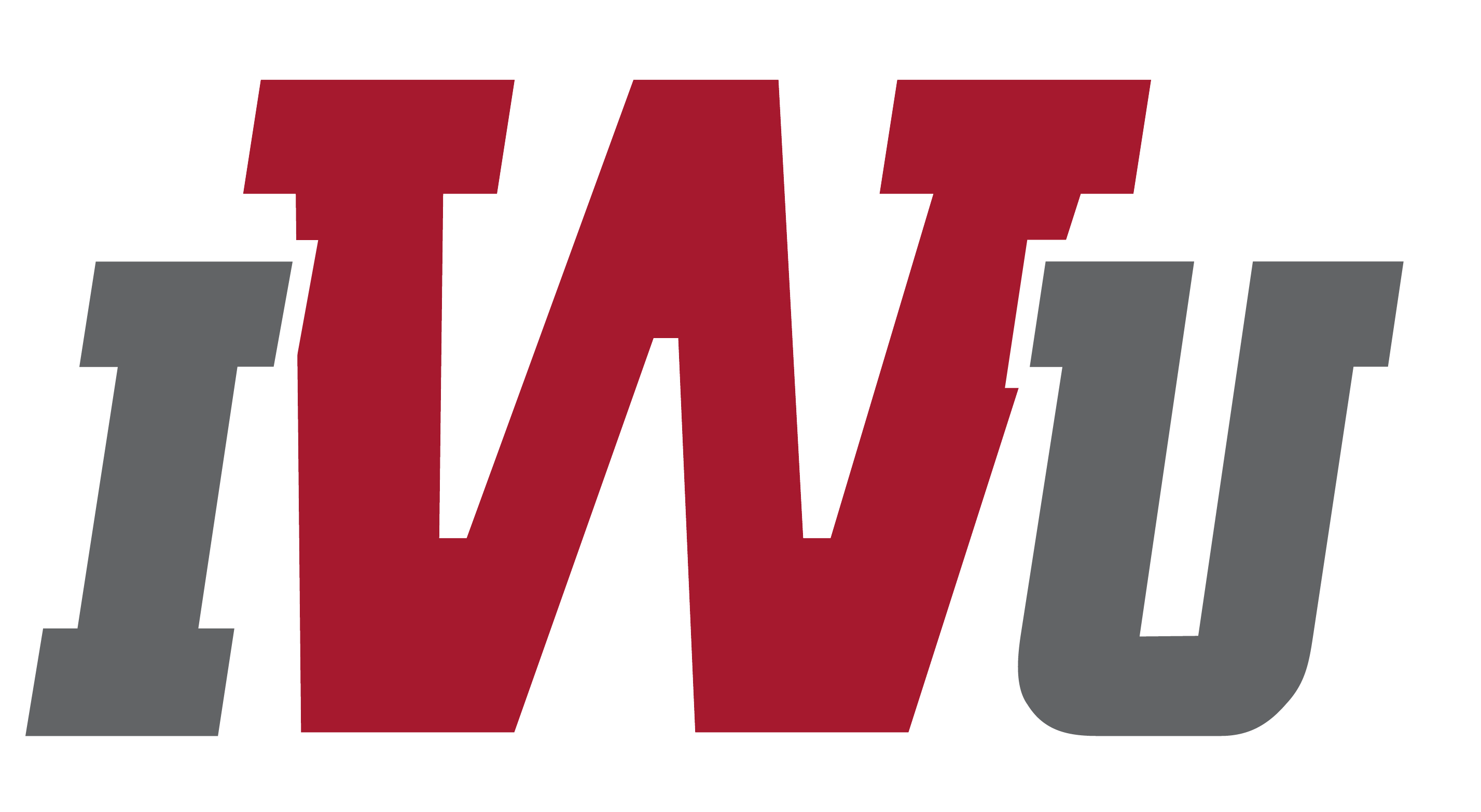 A.S. Occupational Therapy Assistant Degree
Request Info
A.S. Occupational Therapy Assistant Degree
Request Info
Ready to make a difference in the lives of those experiencing functional challenges? IWU’s Global Associate of Occupational Therapy Assistant degree program can help you gain your entry-level foundation of skill and knowledge in occupational therapy. Foundational Phase courses (Non-OTA courses) may be transferred in or earned online. The Professional Phase courses (OTA courses) are seated onsite at our Greenwood Educational Center (conveniently located directly off I-65 at Main Street in Greenwood, IN) and can be completed in 14 months. Your associate degree serves to support people to complete the things they need and want to do in their daily activities working in a variety of healthcare and community settings.
Why Pursue My Degree as an Occupational Therapy Assistant at IWU?
With an associate program that balances class theory with hands-on, clinical experiences, IWU has aimed for the highest caliber of higher education experience for more than a century—and online education for more than a quarter century. When you begin, we will lock in your tuition rate, so you won’t have to worry about price increases as you study. Today, we are proud to offer the support you need to have a meaningful impact on better functional ability and overall well-being for others—through faculty who bring a practitioner-centered approach to your learning and curriculum aligned to industry standards and best practices. Our Christian faculty teach from the same biblical worldview valued on our campus, so that students can implement these principles in a fulfilling career.
What Will I Learn in an Occupational Therapy Assistant Degree?
This AS program prepares a student as an Occupational Therapy Assistant to deliver occupational therapy services under the supervision of and in partnership with the Occupational Therapist to those with diminished functional ability in everyday tasks. Coursework covers basic OT theory, along with functional anatomy/kinesiology, enhanced by clinical and fieldwork experiences. Courses will help you prepare for the National Board for Certification in Occupational Therapy (NBCOT) Certification Exam for Occupational Therapy Assistants and pursue practice as a licensed professional.
Want to further your education?
Following graduation and successful passing of the NBCOT exam, working OTA graduates of the IWU OTA program have the opportunity to advance their education through the online Bachelor of Health Science in Health Sciences program. After completing a bachelor’s degree, graduates who meet the criteria, may apply to the IWU Occupational Therapy Doctorate degree program.
Upon completion of the IWU Occupational Therapy Assistant Program, students will be able to demonstrate:

These courses contain the program-specific knowledge. Upon completion, you should have the tools to conquer your new career with confidence. For a full list of courses required to complete your degree, please visit the course catalog. Click on a course below to view the description.
PHE-190,ENG-140,PSY-150,ENG-141,COM-115,PSY-250,BIB-120,PSY-366,MAT-112,BIO-111,BIO-111L,BIO-130,BIO-112,BIO-112L,BIO-131,OTA-110,OTA-240,OTA-250,OTA-120,OTA-260,OTA-270,OTA-300,OTA-310,OTA-320,OTA-350,OTA-330,OTA-340,OTA-360,OTA-365
| Course # | Course Name | Modality | Credits | ||
| PHE190 | Medical Terminology | Online | 3 | ||
| ENG140 | College Writing | Online | 3 | ||
| PSY 150 | General Psychology | Online | 3 | ||
| ENG141 | Research Writing | Online | 3 | ||
| COM115 | Introduction to Human Communication | Online | 3 | ||
| PSY250 | Developmental Psychology | Online | 3 | ||
| BIB120 | Bible as Literature | Online | 3 | ||
| PSY366 | Psychology of Abnormal Behavior | Online | 3 | ||
| MAT112 | General Statistics | Online | 3 | ||
| Students must take series BIO130 and BIO131(online) OR BIO111/111L and BIO112/111L (seated) or equivalent | |||||
| BIO130 | Anatomy & Physiology I with Lab for Health Sciences | Online | 4 | ||
| BIO131 | Anatomy & Physiology I with Lab for Health Sciences | Online | 4 | ||
| - OR - | |||||
| BIO111/111L | Anatomy Physiology I (offered in person with anatomage table) | Campus | 4 | ||
| BIO112/112L | Anatomy Physiology II (offered in person with anatomage table) | Campus | 4 | ||
| Term 1 - Fall | |||||
| Course# | Course Name | Modality | Credits | ||
| OTA110 | Foundations of OT I: Balance of Personal Performance and Well-being and Professional Responsibilities | Campus | 2 | ||
| OTA240 | Functional Anatomy/Kinesiology | Campus | 4 | ||
| OTA250 | OT theory and Concepts | Campus | 3 | ||
| Term 2 - Winter | |||||
| OTA120 | Foundations of OT II: Models, Theories, Evidence Based Practice, Intraprofessional/Interprofessional Communication | Campus | 2 | ||
| OTA260 | Clinical Reasoning/Occupational Performance I: Pediatrics/Adolescents | Campus | 3 | ||
| OTA270 | Clinical Reasoning/Occupational Performance II: Mental Health Conditions | Campus | 3 | ||
| OTA300 | Fieldwork IA: Community/Emerging Practice Skills Collaboration | Campus | 1 | ||
| Term 3 - Spring | |||||
| OTA310 | Clinical Reasoning/Occupational Performance III: Orthopedic and Non-neurological Conditions | Campus | 4 | ||
| OTA320 | Clinical Reasoning/Occupational Performance IV: Neurological Conditions | Campus | 3 | ||
| OTA350 | Clinical Reasoning and Competency/Occupational Performance V: Life Satisfaction and Aging (Competencies/OTKE) | Campus | 3 | ||
| Term 4 - Summer | |||||
| OTA330 | Fieldwork IB/Therapeutic Interventions/Clinical Applications | Campus | 1 | ||
| OTA340 | Health Systems Management, Servant Leadership, Scholarship and Professionalism | Campus | 3 | ||
| OTA360 | Fieldwork Level IIA 8 full weeks July/Aug | Campus | 2 | ||
| Term 5 - Fall | |||||
| OTA365 | Fieldwork Level IIB 8 weeks Sept-Nov (Floating start/end dates, must complete 8 full weeks) *Return for 3 day Graduate Seminar: preparation for taking NBCOT exam, Fieldwork educator preparation/certificate. December Graduation Commencement | Campus | 6 | ||
| Total OTA Credits - 40 | |||||
| Total Credits to Graduate - 75 | |||||

The Occupational Therapy Assistant Program is a Selective Admissions Program, which means not every student in the applicant pool may be accepted. Admission to the Occupational Therapy Assistant Program is competitive and enrollment in the program is limited because of available faculty, financial, and fieldwork resources. Requirements for admission to the program include:
Once enrolled in the foundational phase, prior to the professional phase of the program, students must attend an orientation prior to the start of the first term student is enrolled in and thereafter must meet one time per term with the OTA Program Director to review progression, must complete required observation/service learning hours, and must attend at least one Student Occupational Therapy Association meeting per term. Students who have completed the equivalent of all the courses in the foundational phase of the program, must demonstrate equivalent observation/service learning hours prior to admission into the professional phase of the program.
Conditional acceptance into Foundational Phase floating according to number of courses needed upon admission. Full acceptance occurs upon successful completion of Foundational Phase courses prior to start of Professional Phase that occurs each August term start.
The OTA program professional phase is lock-step. All courses are carefully planned to provide for foundational learning, then build on previous learning and provide for skill development in preparation for the National Board for Certification in Occupational Therapy (NBCOT) exam and to practice as a licensed practitioner. All OTA courses must be taken at Indiana Wesleyan University. All the professional phase courses must be successfully completed in the sequence prescribed by the program's requirements. Failure to successfully complete a course will result in an administrative withdrawal from the program. Students who are unable to complete a course or who receive an unsatisfactory grade will be allowed to repeat that course with the next cohort provided the student follows through with a petition for re-enrollment process. Tuition and fees will be charged for repeating the course. OTA students will be academically dismissed upon receipt of a second unsatisfactory grade.
Continuing Competency/Lifelong Learning
In order to assist the student to acquire the habit of lifelong learning; to understand the continuing competency process as required by most state licensure acts and NBCOT certification, and to provide for integration of learning and best prepare for practice; students are required to participate in a series of observation and service-learning activities in the community throughout their education experience. This is an integral part of the course requirements. The students are required to participate in the following 18 hours (aligns with the required 18 hours of required continuing education for Indiana state OTA licensure) of observation/service-learning:
|
Hours: |
Observation/Service-Learning: |
Course Number: |
Course: |
|---|---|---|---|
|
2-4 hrs |
Volunteerism SOTA/non-profit organization prior to start of OTA110 |
OTA110 |
Foundations of OT I: Balance of Performance & Well-Being and Professional Responsibilities |
|
4 hrs |
Observation/Interview of OT Practitioner prior to start of OTA110 |
OTA110 |
Foundations of OT I: Balance of Performance & Well-Being and Professional Responsibilities |
|
4 hrs |
Observation/Reflection of OT Practitioner |
OTA 120 |
Foundations of OT II: Models, Theories, Evidenced Based Practice, and Intraprofessional/Interprofessional Communication |
|
4 hrs |
Observation/Service-Learning of adult day center/skilled nursing facility/behavioral center group process |
OTA250 |
OT Theory and Concepts |
|
4 hrs |
Observation of OT Practitioner practicing in Pediatric Services/ Schools |
OTA260 |
Clinical Reasoning/Occupational Performance Patterns I: Pediatric/Adolescence Conditions |
|
18 hrs |
|
|
|
Each course has specific course related assignments. For each learning experience the student is required to fill out and have the designated person from the site sign the form. The form is placed in the student’s portfolio.
Minimum Computer Requirements
Students are expected to possess a computer throughout the duration of their program. Student’s computers must be able to run a supported browser and handle additional plug-ins as identified by the Learning Management System (LMS) company. Students should be able to produce, send, and receive documents that are compatible within the two most recent offerings of Microsoft Office to complete most of the assignments. IWU will offer support to students on only these two offerings of office software. Computer and internet connection may need to be fast enough in some courses to watch streaming videos, participate in live meetings, upload large files, install software, and listen to audio lectures. In addition to these minimum expectations, participation in an IWU course or program may entail additional computing and/or technology requirements.

Indiana Wesleyan University is accredited by The Higher Learning Commission (HLC), www.hlcommission.org, 312-263-0456. Other accreditations and associations of Indiana Wesleyan University are available at www.indwes.edu/about/iwu-profile/accreditation.
The occupational therapy assistant program has been granted a status of Accreditation-Inactive by the Accreditation Council for Occupational Therapy Education (ACOTE) of the American Occupational Therapy Association (AOTA), located at 7501 Wisconsin Avenue, Suite 510E, Bethesda, MD 20814. ACOTE’s telephone number c/o AOTA is (301) 652-AOTA and its web address is www.acoteonline.org. The status indicates that the program is not currently enrolling new students and does not plan to enroll new students in the future. While the program is on Accreditation-Inactive status, the graduates of the program will be eligible to sit for the National Certification Examination for the Occupational Therapy Assistant administered by the National Board for Certification in Occupational Therapy (NBCOT). After successful completion of this exam, the individual will be a Certified Occupational Therapy Assistant (COTA). In addition, all states require licensure in order to practice; however, state licenses are usually based on the results of the NBCOT certification examination. Note that a felony conviction may affect a graduate's ability to sit for the NBCOT certification examination or attain state licensure.
| Graduation Year | Students Graduated/Admitted | Graduation Rate |
|---|---|---|
| December 2024 | 8/13 | 62% |
| December 2023 | 4/7 | 57% |
| December 2022 | 8/10 | 80% |
| December 2021 | 16/22 | 69% |
| Total | 36/52 | 69% |
| Year | Passing Exams/Taken Exams | Passing Percentage |
|---|---|---|
| 2022 | 12/13 | 92% Pass Rate |
| 2023 | 8/8 | 100% Pass Rate |
| 2024 | 3/3 | 100% Pass Rate |
| Overall 3-Year | 23/24 | 95% Pass Rate |
(July 1, 2024 through June 30, 2025)
| Fall Trimester | Spring Trimester | Summer Trimester | Academic Year | Total Cost of Program | |
|---|---|---|---|---|---|
| Tuition | $5,005.00 | $4,620.00 | $4,620.00 | $14,245.00 | $28,875.00 |
| Educational Resource Fee | $60.00 | $60.00 | $180.00 | $180.00 | $302.28 |
| Books and Supplies | $72.00 | $695.53 | $794.59 | $1,562.32 | $2,500.00 |
| Graduation Fee | $100.00 | ||||
| Program Total | $5,137.00 | $5,375.53 | $5,474.59 | $15,987.32 | $31,777.28 |
*Payment for each term is due by August 15th for Fall and by December 15th for Spring. Not all course textbooks are included in the costs listed above.
*The total credit hours and per-credit-hour costs listed above are effective for the required core program. Costs may change if you bring in transfer credits, withdraw from the program and restart in a future program at a later date.
*Published tuition and fees are subject to change.